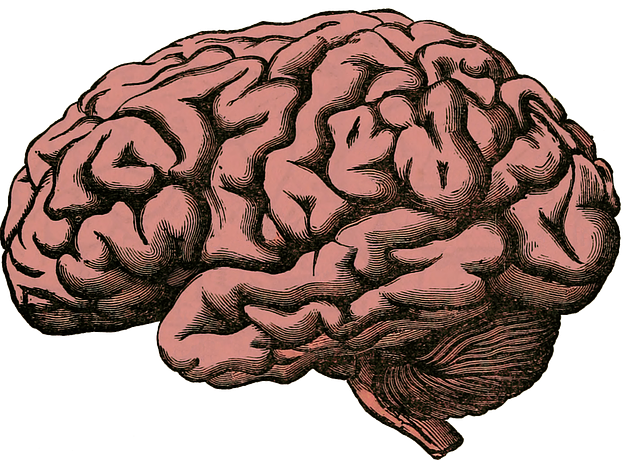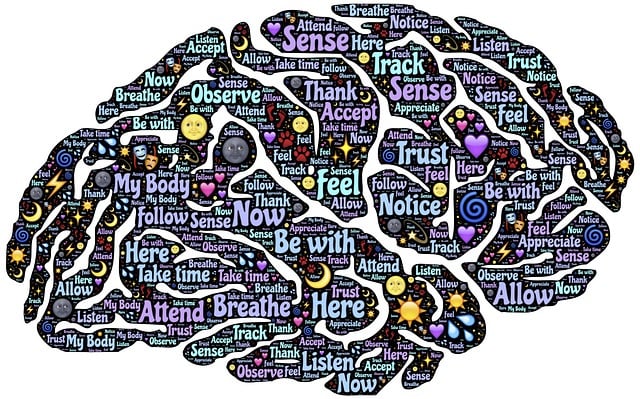Early intervention through tailored therapy is crucial for young children who have experienced trauma, as it addresses emotional intelligence gaps and limited coping tools. Strategies like Cognitive Behavioral Therapy (CBT) and Eye Movement Desensitization and Reprocessing (EMDR) build resilience, teach healthy coping, and prevent long-term substance abuse. Creating supportive environments at home and school, coupled with community outreach programs, empowers children to manage stress and emotions effectively. Specialized therapy, including TF-CBT and mindfulness meditation, is vital for recovery and fostering well-being among vulnerable young individuals.
In addressing substance abuse among young children, understanding the intricate link between trauma and addiction is paramount. This article explores comprehensive risk reduction strategies, focusing on early intervention to mitigate vulnerabilities. We delve into evidence-based therapies tailored for young children’s trauma, highlighting their efficacy in healing and prevention. Additionally, we examine environmental factors, advocating for supportive home and school settings, as well as community resources that foster long-term recovery. By integrating these strategies, we aim to empower professionals and parents alike to combat substance abuse effectively.
- Understanding the Connection Between Trauma and Substance Abuse in Young Children
- Early Intervention: Identifying and Addressing Risk Factors
- Evidence-Based Therapies for Treating Childhood Trauma
- Creating a Supportive Environment at Home and School
- Community Resources and Long-Term Strategies for Sustained Recovery
Understanding the Connection Between Trauma and Substance Abuse in Young Children

Many young children who experience trauma may turn to substance abuse as a coping mechanism. Traumatic events can overwhelm a child’s emotional intelligence and coping skills, leading them to seek relief from intense emotions through self-medication with drugs or alcohol. This can be especially prevalent in environments where access to healthy coping mechanisms like therapy for young children trauma is limited.
Early intervention is crucial in breaking this cycle. Therapy tailored for young children who have experienced trauma focuses on building emotional resilience, teaching healthy coping strategies, and fostering a safe space for them to process their experiences. By addressing the root causes of substance abuse and prioritizing mental wellness podcast series production, these therapies aim to prevent burnout and promote long-term mental health and emotional well-being in vulnerable young individuals.
Early Intervention: Identifying and Addressing Risk Factors

Early intervention plays a pivotal role in mitigating risks associated with substance abuse, especially among younger demographics. By identifying and addressing risk factors at an early stage, such as during therapy for young children experiencing trauma, professionals can significantly alter the trajectory of a person’s life. This proactive approach not only helps to prevent the onset of substance misuse but also fosters better mental wellness and resilience.
Implementing comprehensive mental health education programs designed with crisis intervention guidance can equip both individuals and communities with essential tools to recognize and manage potential risks. Such initiatives promote an environment where seeking help is normalized, reducing the stigma often associated with mental health issues and substance abuse. Early identification of at-risk individuals allows for timely interventions, ensuring that problems are addressed before they escalate into more severe mental health crises.
Evidence-Based Therapies for Treating Childhood Trauma

Early childhood trauma is a significant risk factor for substance abuse later in life. Evidence-based therapies play a crucial role in addressing this issue and promoting positive healing outcomes. One such therapy, Cognitive Behavioral Therapy (CBT), is widely recognized for its effectiveness in treating trauma. CBT helps young children identify and change negative thought patterns and behaviors associated with traumatic experiences. By teaching them coping skills development, such as problem-solving strategies and stress reduction methods, CBT equips them to manage their emotions more effectively.
Additionally, Eye Movement Desensitization and Reprocessing (EMDR) therapy has gained prominence in treating childhood trauma. This innovative approach combines guided eye movements with traumatic memories to help children process and reduce the intensity of these memories. Integrating EMDR into therapeutic interventions facilitates self-care practices that are essential for trauma recovery. These evidence-based therapies not only address the underlying causes of substance abuse but also empower young individuals with valuable tools to navigate life’s challenges without resorting to harmful coping mechanisms.
Creating a Supportive Environment at Home and School

Creating a supportive environment at home and school is paramount in mitigating the risks associated with substance abuse, especially for young children who are more vulnerable to trauma and its lasting effects. Early intervention through therapy for young children experiencing trauma can significantly alter their future trajectory. Homes and schools that prioritize emotional regulation and foster open communication channels help children develop healthy coping mechanisms, reducing the likelihood of turning to substances as a means of escape or self-medication.
Implementing community outreach programs and organizing stress management workshops in educational institutions empowers students with essential tools for emotional well-being. These initiatives teach young minds how to manage stress, process emotions effectively, and build resilience against external pressures that might contribute to substance abuse. By weaving a safety net of support at both home and school, communities can proactively steer children away from destructive behaviors and pave the way for a brighter, healthier future.
Community Resources and Long-Term Strategies for Sustained Recovery

Community resources play a pivotal role in long-term strategies for sustained recovery from substance abuse, especially when focusing on young children who have experienced trauma. Early intervention and access to specialized therapy, such as trauma-focused cognitive behavioral therapy (TF-CBT), can significantly impact a child’s future well-being. These therapeutic approaches not only address the underlying causes of substance abuse but also teach essential coping mechanisms and self-care practices.
Incorporating mindfulness meditation into recovery plans is another effective strategy. It aids in depression prevention and promotes emotional regulation, offering individuals valuable tools to navigate stressful situations without resorting to substances. By leveraging community support networks and integrating evidence-based practices like therapy for young children with trauma and mindfulness meditation, individuals can foster a deeper sense of connection, resilience, and long-term recovery.
In addressing substance abuse risks, a comprehensive approach focusing on early intervention and supportive environments is key. By understanding the connection between trauma and its impact on young children, we can implement evidence-based therapies to treat childhood trauma effectively. Combining these strategies with community resources creates a network of support for long-term recovery, ensuring a brighter future for at-risk youth. For families seeking help, available therapy options specifically designed for young children’s trauma offer hope and healing.












